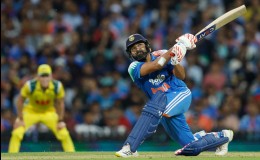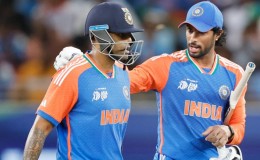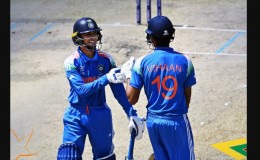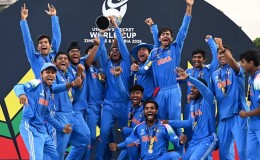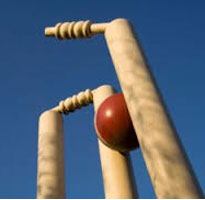 New Delhi: To regulate or not to regulate sports betting in India is not the question. The question, as articulated by Justice Mukul Mudgal, former Chief Justice, Punjab and Haryana High Court and Chairman, SC-Probe Panel, IPL 2013 Betting and Spot Fixing Scandal is, why regulation is slow to come by.
New Delhi: To regulate or not to regulate sports betting in India is not the question. The question, as articulated by Justice Mukul Mudgal, former Chief Justice, Punjab and Haryana High Court and Chairman, SC-Probe Panel, IPL 2013 Betting and Spot Fixing Scandal is, why regulation is slow to come by.
Speaking at the FICCI Conference on Regulating Sports Betting and Sports Law here on Saturday, Justice Mudgal gave several reasons for regulating sports betting with a sense of urgency.
He said that the Government can earn substantial amount of revenue from taxing these activities; it is taking place in an unauthorized manner in the country which is threatening the integrity of sports and players; some grass root sports programs in the country could very well do with the money received from taxing sports betting; unauthorized betting is providing revenue to the criminals in the society which is being used for other illicit purposes; and there is an exposure of the law abiding citizens to such criminals.
Without regulated betting it is very difficult to detect and conduct investigation on sporting fraud, Justice Mudgal emphasised.
He said one of the biggest threats to the integrity of sports besides doping is sporting fraud. Sporting fraud being the umbrella term which would cover all kinds of activities which are a threat to the integrity of sports like match fixing, spot fixing, tanking, point shaving amongst others.
Justice Mudgal said the rate at which the winnings from betting should be taxed can be decided by the government. He felt 20% on the winnings would not be high, especially considering that in some jurisdiction like Austria it is at 28% and in the UK it is up to 25%.
He, however, cautioned that any regulation that may be proposed at a future date needs to be well thought out and should be done after extensive consultation with all the stakeholders whilst evaluating the social conditions.
Mr. Vishwanathan, Additional Solicitor General of India said in the conference that “There are pros and cons are involved in legalising and regulating betting but before this Govt. should set up an Independent Regulatory Commission who can study the various aspects in depth and come out with a solutions keeping in mind the elimination of book makers. While the technically copying the west will be suicidal since the social moral are different, letting illegal bookmaking rampant will not also be more appropriate”.
Mr. Alex Ward, Vice-President, Commonwealth Lawyers Association expressed in his speech that “The concern in Australia on Gambling & Betting results is less important than concern on corruption, Doping & Match Fixing. India Should start the betting legalising and Regulating rather than preventing. By regulating like in Australia the central and state government can get the more revenue for Sports development budget. In India there are some social and ethical problems like not in Australia”
Mr. Carl Rohsler, Partner, Squire Sanders (UK), LLP & International Gambling Laws Expert added that India has a choice about whether it regulates certain forms of gambling. It may decide to do so, or it may decide to impose even stricter prohibitions than those that exist today.
“One thing that I would like to see is a survey of gambling in India – to try to gain some understanding of the numbers involved. I would also recommend the creation of some kind of committee to address itself formally to issues relating to gambling – in order to be a repository of information and knowledge not only about gambling in India but gambling all around the world. FICCI has done a great deal to start the debate - but it cannot be expected to shoulder the whole burden. The time has come for more formal support. I stress that this is not support of gambling, but support of finding out about gambling.”
He said the primary reason for regulating gambling is to protect society from the problems that are associated with gambling. Gambling does cause social harm – and one of the duties of government is to protect its society from harm in the most effective way possible.
First, is the actual harm that is sometimes caused by gambling itself. Whilst many people gamble safely and moderately, others gamble more than they can afford, leading to their own impoverishment and often of their families and friends as well. Sometimes this goes as far as a medical addiction.
Second, money moves rapidly from the illegitimate sector to the legitimate sector. Why gamble illegally when you can gamble legitimately in a shop? He said.
Third the government now has power. Because that which the state gives, it can also take away. The owner of a privilege has to abide by the rules – to operate gambling in a way which is honest, appropriate and transparent. If it does not, it loses its privileged position.
Fourth, match fixers and money launderers find it harder to operate. Such people need an opaque, anonymous and liquid market to operate in. But in a regulated market, the legitimate industry sucks money from the illegal sector into the legal sector. Criminals and fixers find life harder.
And finally, regulated operators report illegitimate and suspicious behaviour because they have a direct interest in keeping illegitimate operators out of the market. Good regulation is to some extent self-policing.
Dr. A. Didar Singh, Secretary General, FICCI, pointed out that the betting market in India is estimated to be 600 million US$. With a possible rate of tax of 20% on profit, it can bring a possible revenue of 120-190 Million US$ to the government.
He said globally funds from sports betting and gambling are being utilized to generate funds for good causes and promotion of sports.The moot question was whether sports betting can likewise be regulated in India and funds from sports betting and lottery could also support development and funding of sports like many other countries.
Lottery is already a regulated business in India. While we do not have authentic figures about all the States in India because of the different methods adopted for accounting of lottery receipts. It is reliably understand that State like Kerala is getting net revenue of Rs.682 crores (FY 2012-13) through the medium of lotteries. It has been estimated that the potential revenue for all the states from lotteries would not be less than Rs.10000 to Rs.12000 crore a year, he said.


